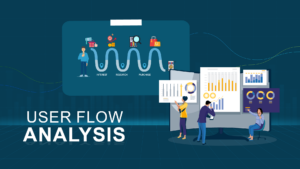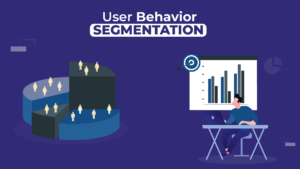
Customer Lifecycle Vs Customer Journey – What’s The Differences
Customer Lifecycle Is a Complete Cycle of the Customer with the Business whereas Customer Journey focuses on specific paths or interactions. Assume a customer lifecycle

Familiar with the concept of website analysis? Curious to know what is website analysis and why web analytics is important? Well, just go through this article to explore the details about it.
Google and other search engines periodically release new improvements. Since consumer behavior is dynamic, you must regularly track and monitor the visitors’ activities.
Understanding your users, clients, and visitors is the missing component in your website analysis; provide them with what they came to your pages for so they don’t simply land on your flawlessly optimized site they remain on it, use it, and keep returning.
The main theme of this article is to introduce the concept of web analytics and its significance. So, let’s start.
The process of testing, analyzing, and evaluating a website’s performance with important metrics like speed, traffic, search engine optimization (SEO), and user experience is known as website analytics. Web analytics may gather information on traffic origins, referring websites, page views, paths traveled, and conversion rates.
Each of these components contributes to the success of your website and consequently has an impact on how well your business performs. Customer relationship management analytics (CRM analytics) frequently incorporates the accumulated data to assist and streamline better business decisions.
To improve the performance of your website, you can optimize various areas when you wish to conduct a website analysis.
This section will discuss various types of website analytics and the methods of website analysis that you should be familiar with before conducting a website analysis.
SEO enables you to comprehend what online users are looking for when they visit your website. If you type the term “SEO” into Google, you’re going to see a variety of meanings that, if you’re unfamiliar with the term, will certainly confuse you.
There are a number of SEO-related topics you should look into when conducting an analysis for your website.
By conducting an on-page SEO audit, you can identify the technical issues of your website. With the use of on-page SEO auditing, you may examine your website for typical technical problems that might impair its performance in search results, such as missing title> tags or faulty redirects.
The majority of the time, specialist tools are used to carry out this type of analysis; some of these tools are automatic and offer useful recommendations (like Google Search Console), while others are very configurable and enable you to carry out a comprehensive analysis.
Off-site SEO audit is the process of keeping track of user behavior on websites other than that of businesses in order to gauge potential clientele. Off-site web analytics offers a sector-wide analysis that sheds light on how a company is doing in relation to rivals.
Moreover, it alludes to a particular branch of analytics that focuses on information gathered from many online sources, including forums, search engines, and social media.
This analysis displays the page your website ranks for as well as the position of the keywords you’re aiming to rank for. You may also look up your competitors on SERPs to discover what keywords they are targeting and what search terms they are ranking for.
Speed is crucial because both consumers and search engines favor websites that load quickly over those that take a while.
A good general rule is to gather information regarding web page speed (such as what components are too sluggish, huge, etc.) and then utilize the information as a starting point to speed up the website.
Slow-loading websites have two basic issues: users don’t like them, and consequently, neither do search engines. Speed testing is a second crucial component of website analysis because of this.
Understanding how quickly your content loads on various devices may be accomplished by performing a website performance analysis.
You can learn about the number of visitors to your website, the times they access your material, and the locations from which they do so, including their location and the sort of device they are using, by analyzing the traffic your website receives.
Understanding traffic enables you to decide where your resources are best allocated. Numerous in-depth analytics tools, like Google Analytics, track website traffic as well as user behavior after they land on your page.
Nearly all online businesses have competitors who cater to the same target market and provide a comparable good, service, or experience.
Moreover, competitor identification and analysis, quantification of threats they provide, and identification of opportunities and advantages that can be specifically used in your business are all steps in the competitive analysis process.
Important website data is reported by web analytics tools, including where visitors came from, how long they stayed, how they found the site, and what they did online while they were there.
These tools are frequently used for product analytics, social media analytics, and marketing analytics in addition to web analytics. Here, I would like to provide the 10 effective website analysis tools which will be essential to measure the growth of your business.
Do you want to know why website analytics are crucial for the development of your business?
Website analytics gives you detailed statistics and analytics on the actions your site visitors take while they are on your page, as well as information on their age, gender, geography, and other characteristics.
When visitors are on the website, they must find the appropriate content at the appropriate moment. A business can identify possible issues with its website and services by using web analytics.
A poor and confusing sales funnel, for instance, will result in fewer purchases and lower revenue for an online company.
Developing unique landing pages for various objectives could also be helpful. Monitoring the effectiveness of the mobile versions is one way to improve the user experience.
Finding the appropriate target market for your goods and services is vital in marketing. Web analytics will give businesses the knowledge they need to identify and create the ideal target audiences.
Companies can design marketing materials that leave their customers with a pleasant impression by identifying their target audience. A precise target audience will boost the effectiveness of marketing activities and reflect favorably on the business.
Sales and conversions will increase and a website’s performance will improve with the correct marketing campaigns targeting the relevant audiences.
Links that are distinct and precise and that can be traced can be made for various marketing campaigns, whether they are online or offline. With the help of Google Campaign URL Builder, effortlessly create unique links.
You can learn more about how these marketing initiatives have been received by the users and whether they have been lucrative by tracking these unique connections. Moreover, you can uncover possibly high-returning efforts to invest more in campaigns that are performing poorly by tracking all you can.
It is also possible to track offline-to-online efforts using unique URLs. A company may, for instance, provide its own special link at an event or use it in mailings to follow the results.
According to analytics, a person that visits a website and leaves without engaging with it is said to have a high bounce rate. A high bounce rate could reveal the following information:
Users felt the content wasn’t for them or that it didn’t adequately answer their search query.
a poor user experience all around.
Lowering the bounce rate and ensuring that the content is what consumers desire can raise the website’s profitability. User experience tracking and improvement are also important.
It’s difficult to anticipate that a website with a high bounce rate can generate quality leads, sales, or any other business-related conversions.
All of the traffic sources and website conversions will be broken down by the analytics in an understandable manner. A business will identify the operations that contribute the greatest profit to the bottom line after analyzing the available data.
For instance, we discovered through statistics what impact being higher in Google Search results had on a specialized online retailer.
A corporation may invest its time and money more wisely by using analytics to track how organic and paid traffic has changed over time in real time.
The consistent growth in marketing automation and online buying trends are expected to give the worldwide web analytics market a boost.
There will be a lot of market potential as people become more aware of how to use vast amounts of random, disorganized data effectively and as web analytics tools perform better.
According to market research, Source
“The Web Analytics Market is anticipated to expand at a CAGR of 15.2% between 2021 and 2027, rising from USD 5.84 billion in 2021 to USD 18.33 billion in 2027.”
The complexity of websites increased along with log analysis. Browsers had to send redundant HTTP requests with the addition of graphics, audio, and video on websites.
The server log didn’t indicate any caching or temporarily storing a file in the system to prevent repeated HTTP requests. Tag-based tracking, which gathered data on more than simply hits, provided a solution to this issue.
The inclusion of marketing in analytics was made possible by the new data.
Website analysis is essential for your business if you want to keep ahead of the competition and constantly evolving trends. Never forget that you shouldn’t just analyze a website for the sake of it; you need to have a specific objective in mind that you hope to achieve.
By doing this, your website and content continue to rank in search engines while also keeping your consumers and internet visitors happy.

Customer Lifecycle Is a Complete Cycle of the Customer with the Business whereas Customer Journey focuses on specific paths or interactions. Assume a customer lifecycle

Welcome to the world of user activation software, where the secret sauce to unlocking the full potential of your product or service lies. In this
Have you ever wondered how businesses track user actions on their websites or apps? How do they measure the success of their marketing campaigns and

Have you ever wondered how users navigate through websites or apps? How do they seamlessly move from one screen to another, making decisions and accomplishing

Do you want to create a product that truly speaks to your customers? Are you looking for ways to gather valuable feedback and improve the

Ever wondered how often customers visit your online store before making a purchase? Or which promotional messages drive higher-value sales? User behavior segmentation holds the
Join companies that have successfully reduced their churn rate by up to 40% using StatWide’s predictive analytics.